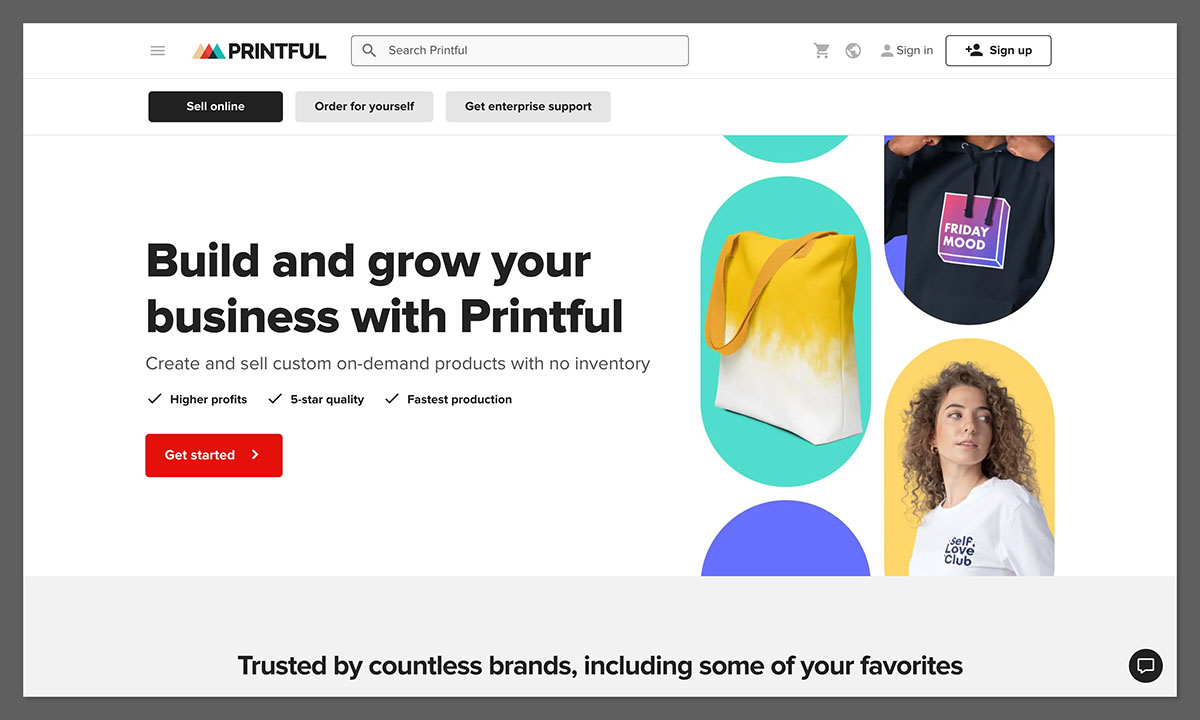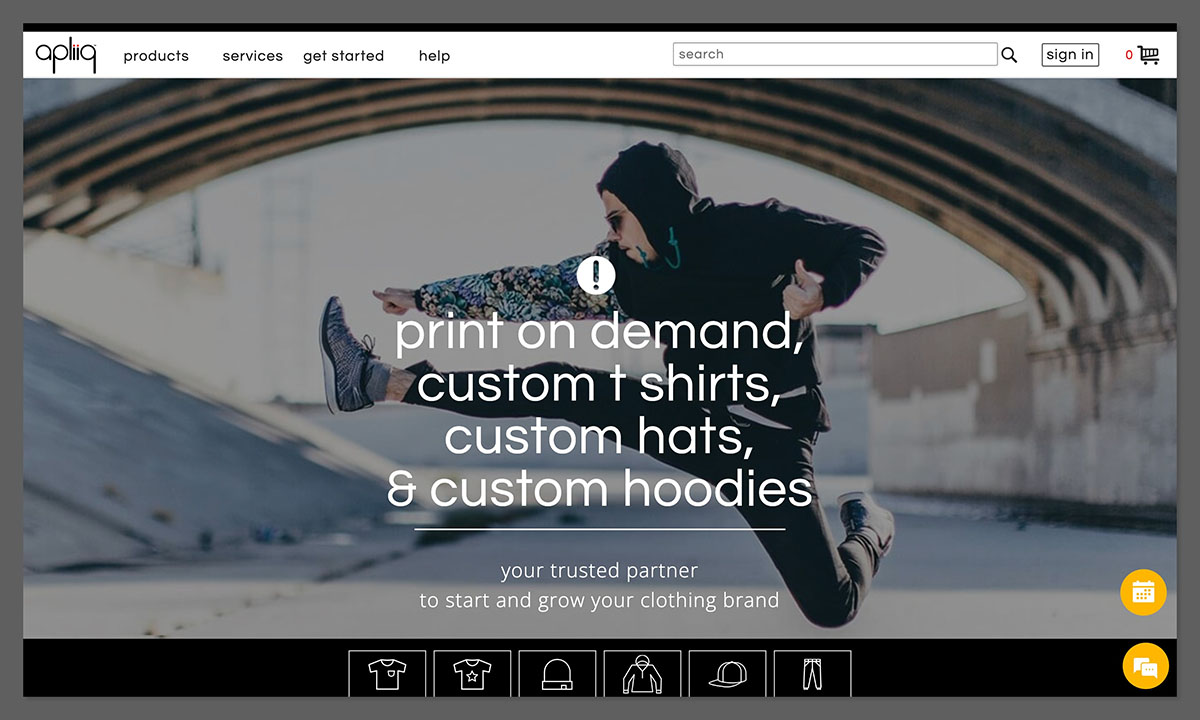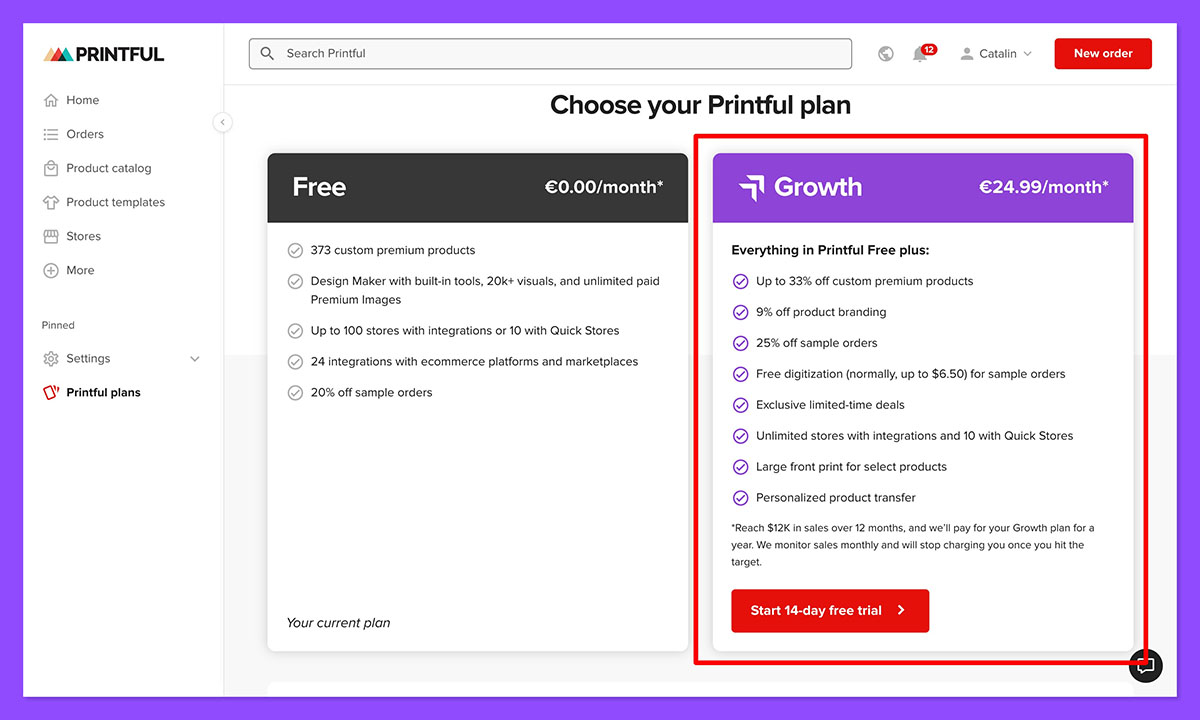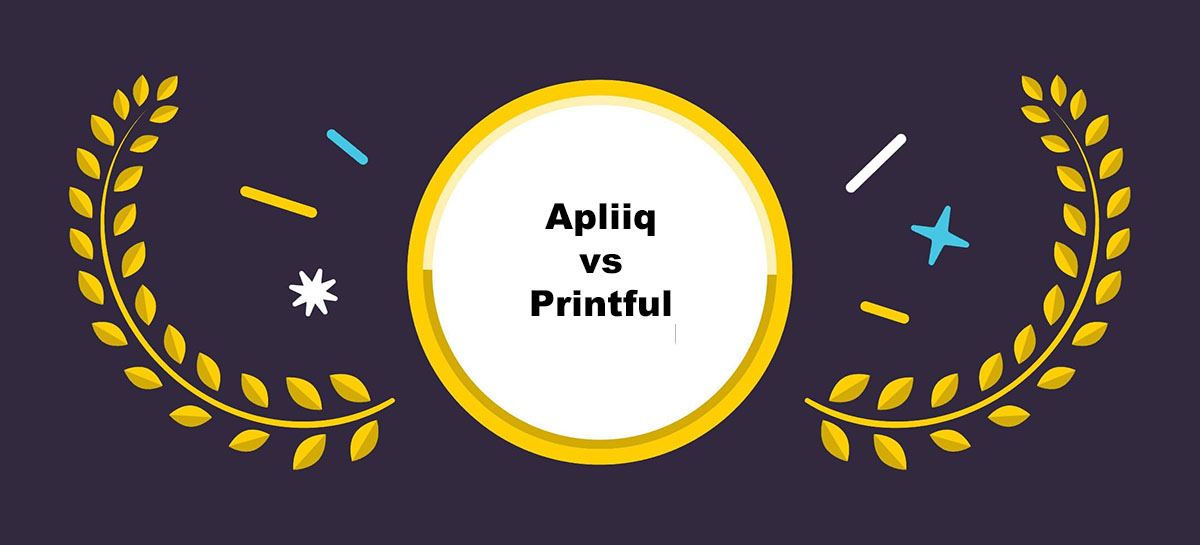So here’s the thing…
If you’re running a print-on-demand store, choosing the wrong supplier will wreck your brand.
I’ve been in this game for over 10 years. I’ve launched stores, scaled to six figures, tested dozens of POD platforms, and helped clients avoid rookie mistakes that cost thousands.
And the question I get constantly?
“Should I use Printful or Apliiq?”
Here’s the brutal truth: they’re built for completely different types of businesses. I’m gonna break this down for you in plain English — pricing, quality, shipping, branding, integrations — everything that matters.
Let’s cut through the fluff and get to it.
Quick Verdict: Printful vs Apliiq
If you want speed, simplicity, and scale, go with Printful. It’s perfect for beginners, general stores, and creators who want plug-and-play fulfilment with minimal fuss.

But if you’re building a real fashion brand with custom labels, streetwear vibes, and premium pricing, Apliiq is the better long-term move.

It gives you the tools to actually look and feel like a proper clothing line — not just another merch store.
Printful = Easy and fast
Apliiq = Unique and brand-first
Pick the one that fits your business model — not just the one with better reviews.
Printful vs Apliiq – Comparison Table
| Feature | Printful | Apliiq |
|---|---|---|
| Product Quality | High, consistent DTG & embroidery | High, with unique branding options |
| Custom Branding | Limited (labels, packing slips) | Advanced (woven labels, patches, private label) |
| Fulfilment Speed | 2–5 days average | 5–7 days average |
| Shipping Coverage | Global (US, EU, AU) | Mostly USA |
| Base Product Price | Higher than average | Similar, but lower with wholesale setup |
| Integrations | Shopify, Etsy, Amazon, Woo, etc. | Shopify, Etsy only |
| Ease of Use | Very easy, polished dashboard | Slight learning curve |
| Best For | General merch, global reach | Streetwear brands, premium branding |
| Mockup Generator | Clean and flexible | Slightly clunky |
| Support | Fast and responsive | Solid but not as fast as Printful |
Pros and Cons – Quick Summary
Printful
Pros:
- Fast global fulfilment
- Super easy to set up and scale
- Reliable print quality
- Tons of integrations
Cons:
- Higher base costs
- Limited custom branding
- Not ideal for fashion-forward brands
Apliiq
Pros:
- Incredible custom branding options
- Wholesale pricing for better margins
- Ideal for premium, fashion, or streetwear brands
Cons:
- Slower fulfilment
- Limited integrations (Shopify & Etsy only)
- UI can be harder to learn
Quality: Who Delivers the Best Product?
If you care about quality (you should), here’s what I’ve learned:
Printful is consistent. Their DTG prints are clean, vibrant, and hold up after multiple washes. They use blanks from trusted brands like Bella+Canvas, Gildan, and AS Colour.

You’ll rarely get complaints about the fabric or the print — it just works.
Apliiq, on the other hand, plays a different game. They give you options no one else does: embroidery, applique, custom patches, and real fashion-level branding.
Their focus is streetwear, fashion drops, and unique gear — not just printed merch. But I’ll be real — I’ve seen a few inconsistent prints over the years.
Nothing major, but not quite as bulletproof as Printful’s quality control.
If you want plug-and-play products that won’t cause problems? Go Printful.
If you want next-level streetwear with personality? Apliiq wins.
Pricing: What’s the Real Cost?
This is where most people get burnt.
Printful charges premium prices. A basic tee with shipping can hit $13–$16 — which eats into your margin fast unless you’re selling at $35+ per shirt. You’re paying for reliability and speed.
Apliiq is a bit different. Their standard prices are similar or slightly higher… but once you activate their wholesale program (by using custom labels), you unlock real profit potential.
It’s perfect if you’re scaling a brand and want stronger margins. You just need to commit to branding setup first.
Printful Pricing in 2025: What You Actually Pay

If you’re confused about how Printful charges you — you’re not alone. Most people don’t realise how many variables are involved until they see the bill.
But here’s the truth:
Printful’s new pricing model in 2025 is actually one of the best in the POD game — if you know how to use it right.
There are now two main pricing tracks: one free, one paid — and if you scale even a little, you might not even have to pay for the paid one.
The Free Plan: All the Basics, Zero Monthly Fees
This is the plan most sellers start with — and honestly, it gives you a lot:
- No monthly fees
- Access to the full product catalog
- Integration with Shopify, Etsy, Woo, TikTok Shop, and more
- 24/7 support and Printful Academy training
- Global fulfilment from multiple warehouses
- Free design tools, mockup generator, and AI image upscaler
- Branded packing slips, free logo maker, and marketing tools
You don’t pay anything monthly. Just the base product cost + shipping whenever a customer places an order.
For most sellers starting out, this is all you need to run a lean, low-risk business.
The Growth Plan: Scale Up with Discounts
Once your business gets traction, the Growth Plan becomes a no-brainer.
- Costs $24.99/month, or free if you hit $12,000 in sales per year
- Up to 33% off products
- 9% off branding add-ons
- 25% off sample orders
- Free digitisation on embroidery samples
- Exclusive sales and perks
- Unlimited stores
- Large front prints on more products
The biggest benefit? It slashes your per-product cost, which can dramatically increase your margins — especially once you’re doing any real volume.
And no other POD company gives you their premium plan for free once you scale. That alone makes it one of the smartest investments out there.
Base Product Costs: Lower Than You Think
Printful used to be on the pricey side. Not anymore.
In 2025, they’ve reduced pricing across the board. Here are some real numbers:
- Gildan 64000 Tee: $10.50
- Gildan 18500 Hoodie: $22.25
- Otto Trucker Hat: $11.95
- All-over Hoodie: $41.25
- Glossy Mug: $6.50
- Matte Poster (12×18″): $7.75
If you’re on the Growth Plan, many of those prices drop another 20–33%.
It’s not the cheapest option out there — but with quality, consistency, and service included, it’s arguably the best value per dollar in POD right now.
Smart Ways to Save with Printful
Here’s how I keep my Printful costs under control without sacrificing profit:
- Stick to 1–2 print areas per item. Adding 3–4 prints gets expensive fast.
- Mix in lower-cost blanks (like Gildan) with premium options (like Bella + Canvas) to give your customers a choice.
- Turn on live shipping rates at checkout. Let customers pay what it actually costs.
- Offer free shipping by baking the cost into your retail price — customers love it.
- Use the sample order discounts monthly to test new designs affordably.
- Hit that $12k sales target fast to get Growth for free.
Printful Payments and Profit Example
Let’s say I sell a Gildan 64000 T-shirt for $25. Here’s what I pay on Growth:
- Base cost: $10.50
- Shipping: $4.69
- Total cost: $15.19
- Profit per shirt: $9.81
Even better if I add upsells, bundling, or do multi-item orders — where shipping per item drops even more.
Apliiq Pricing in 2025: What You Really Pay to Build a Fashion Brand
Apliiq isn’t like the typical print-on-demand platforms.
It’s not about being the cheapest — it’s about custom branding, streetwear-level details, and giving sellers the power to create products that look like they came from an LA fashion house, not a dropshipping site.
That said — if you don’t understand their pricing model, you can torpedo your profit margins before your store even gets going.
Let me walk you through it, no fluff.
Pay-As-You-Go Model: No Monthly Fees
First off — Apliiq has no subscription fees. There’s no monthly plan, no premium tiers, no pricing gates.
You pay only when a customer places an order — just like most other POD platforms.
That means:
- No upfront costs
- No risk of recurring charges eating into your cash flow
- Easy to test without commitment
But here’s the twist: you unlock better pricing the moment you start using Apliiq’s branding features (like woven labels, custom patches, etc).
That’s where the real value starts.
Base Product Pricing: Higher Quality = Higher Base Cost
Apliiq doesn’t mess around with blanks. Most of their stuff is:
- Premium streetwear and fashion-forward cuts
- Sourced from brands like AS Colour, Independent Trading Co, and Bella + Canvas
- Built to be retail-ready, not giveaway tees
Here are some sample base prices:
- AS Colour 5001 Staple Tee: $11.50
- Bella + Canvas 3001 Tee: $12.00
- Independent Trading Co Hoodie: $25.00
- Cuffed Beanie: $11.00
- Dad Hat: $14.00
These numbers don’t include branding or shipping — but even at these prices, you can still run 20–40% profit margins if you price right.
Shipping: Who’s Faster?
Time kills trust. Nobody wants to wait two weeks for a hoodie.
Printful is crazy efficient. Their fulfilment time is usually 2–5 business days, and they’ve got warehouses in the US, Canada, EU, and Australia.
Most customers get their orders fast — sometimes faster than Amazon.
Apliiq ships from Los Angeles and Philadelphia. Fulfilment takes 5–7 days, and if you’re outside the US, things slow down. They’re not slow — but they’re not Printful-speed either.
If fast shipping and global reach matter to you? Printful is hands-down the better option.
Branding: Want a Real Brand or Just Sell T-Shirts?
This is the killer section most creators ignore.
Printful gives you the basics — branded packing slips, optional inside labels (on some products), and the ability to add inserts. It’s good enough if you’re running a general merch store.
But if you want to build a real fashion brand, go with Apliiq. They’re unmatched here.
You can do:
- Fully custom woven labels
- Inside neck tags
- Embroidered logos
- Applique patches
- Cut-and-sew customisation
- Even private-label drops
It’s insane.
I’ve helped clients switch from Printful to Apliiq and instantly double their perceived value. Why? Because branding sells. And Apliiq makes your product feel premium.
If your brand identity matters, Apliiq is miles ahead.
Integrations and Ease of Use
You can have the best product in the world — but if your store breaks, none of it matters.
Printful connects to everything: Shopify, Etsy, Amazon, eBay, WooCommerce, Squarespace — it’s the most plug-and-play POD platform out there. Their UI is smooth, clean, and easy to manage.
Apliiq is more limited. It works with Shopify and Etsy only. The dashboard isn’t as polished, and their mockup tool can feel clunky. That said, once you’re set up, it’s reliable.
If you want speed, flexibility, and lots of platform options — Printful’s the obvious choice.
If you’re focused only on Shopify or Etsy and want serious branding power? Apliiq will work.
Final Verdict: Printful vs Apliiq
It’s not about which one is better — it’s about what you’re building.
Go with Printful if:
- You want fast shipping and global fulfilment
- You care about ease of use
- You’re focused on simple products
- You don’t need heavy branding
Go with Apliiq if:
- You’re building a fashion/streetwear brand
- You want full control over branding
- You’re focused on US-based customers
- You want better long-term margins with wholesale options
Both platforms are solid — just built for different goals.
FAQs
Is Apliiq reliable for shipping and fulfilment?
Yes, but slower than Printful. Apliiq ships from LA and Philly and takes 5–7 days to fulfil most orders.
Can you use both platforms on the same store?
Technically yes, but it’s tricky. Most stores pick one and stick with it for fulfilment consistency.
Does Printful offer embroidery or branding?
They do embroidery, but limited branding options. Apliiq is better for full private label and brand customisation.
Is Apliiq more expensive than Printful?
It can be, unless you activate wholesale pricing by using their branding program. Then your margins can actually improve.
Which one is better for Etsy?
Both work with Etsy. Printful is easier for beginners. Apliiq is better if you’re creating unique or custom fashion items.






